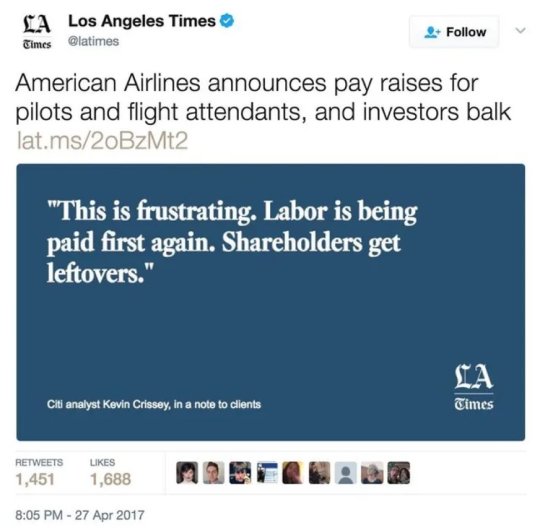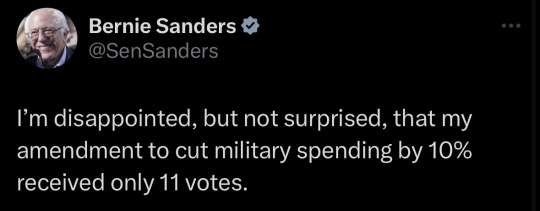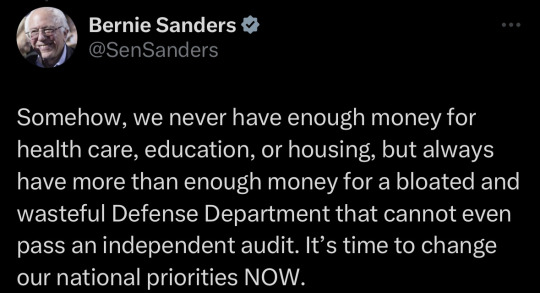#industry politics
Explore tagged Tumblr posts
Text

55 notes
·
View notes
Video
youtube
Chuckii Booker Opens Up About Industry Politics & His Forced Exit from entertainment
#youtube#Troop#Chuckii Booker#Chuckii Booker Opens Up About Industry Politics & His Forced Exit from entertainment#Industry Politics
0 notes
Photo
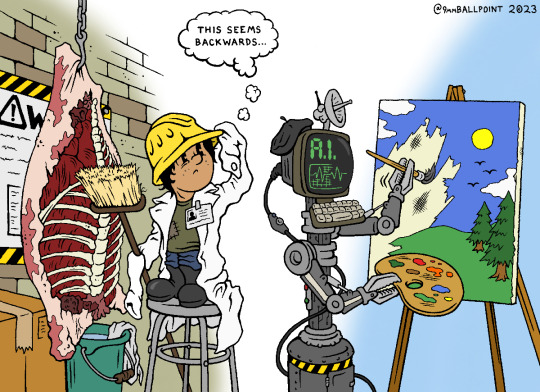
I'm not anti-technology, I just think there's something deeply sick about a society where robots make art and children work in factories.
54K notes
·
View notes
Text

#anti capitalism#scotus#news#democrats#republicans#politics#conservatives#britain#supreme court#biden#trump#usa#prison industrial complex#late stage capitalism
8K notes
·
View notes
Text

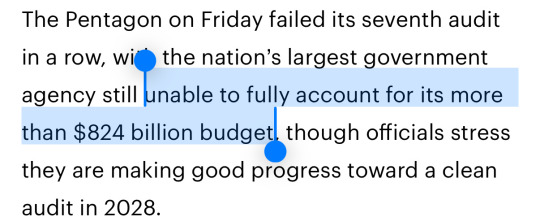
Source
An unfathomable amount of money
#military industrial complex#politics#us politics#government#news#capitalism#end all wars#imperialism#current events
5K notes
·
View notes
Text
This is kind of brilliant, and necessary.
A group of adult entertainment actors is about to spend $100,000 in the next 29 days running anti-Project 2025/anti-Trump ads on adult websites targeting their male audiences in seven battleground states: Pennsylvania, Michigan, Wisconsin, North Carolina, Georgia, Arizona, and Nevada.
Why?
Page 5 of the 920 page Project 2025 manifesto says of pornography:
It has no claim to First Amendment protection. ... Pornography should be outlawed. The people who produce and distribute it should be imprisoned. Educators and public librarians who purvey it should be classed as registered sex offenders. And telecommunications and technology firms that facilitate its spread should be shuttered.
Now whether or not you approve of the porn industry, it's clear that Project 2025 is talking about a much broader thing: whatever these right-wing zealots determine to be "pornographic." Note how teachers and librarians are mentioned specifically. Some bookbanners have called children's books pornographic simply for featuring a lgbtq character.
Closer to tumblr's heart, smutty fanfic and fanfic sites would certainly be swept up if Project 2025 ever came to pass.
So kudos to the adult film stars for stepping up and spreading the word.
#project 2025#first amendment#us politics#2024 elections#adult entertainment industry#vote democrat#tagging this is a challenge
2K notes
·
View notes
Text


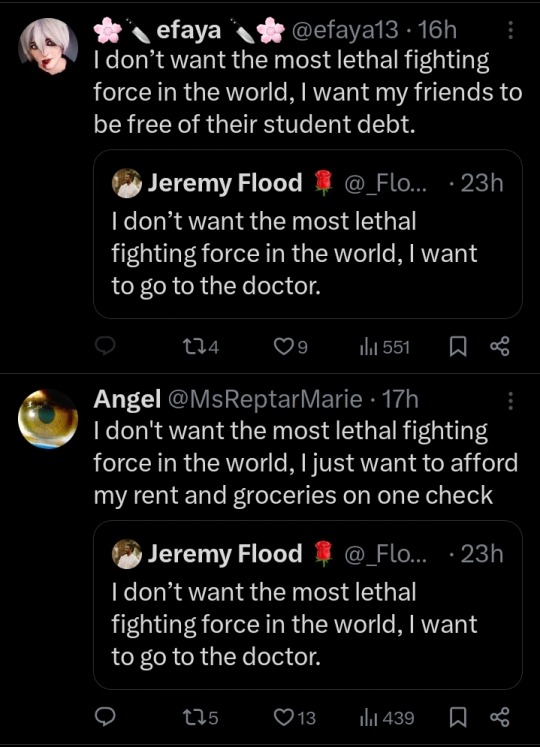

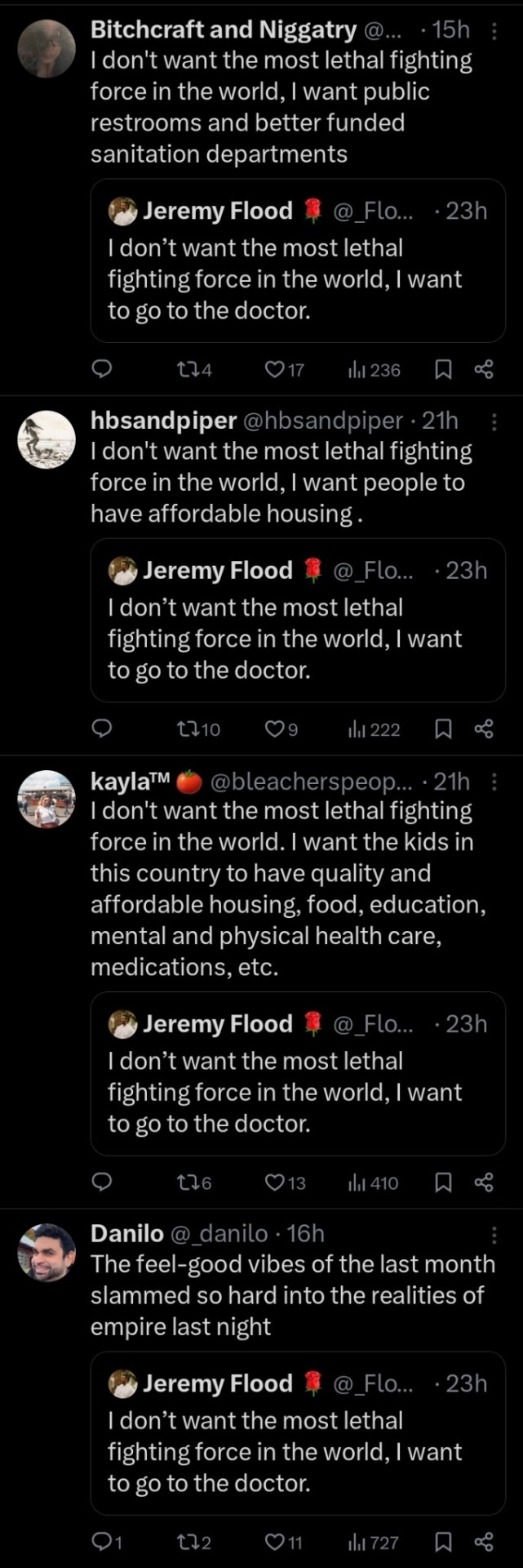
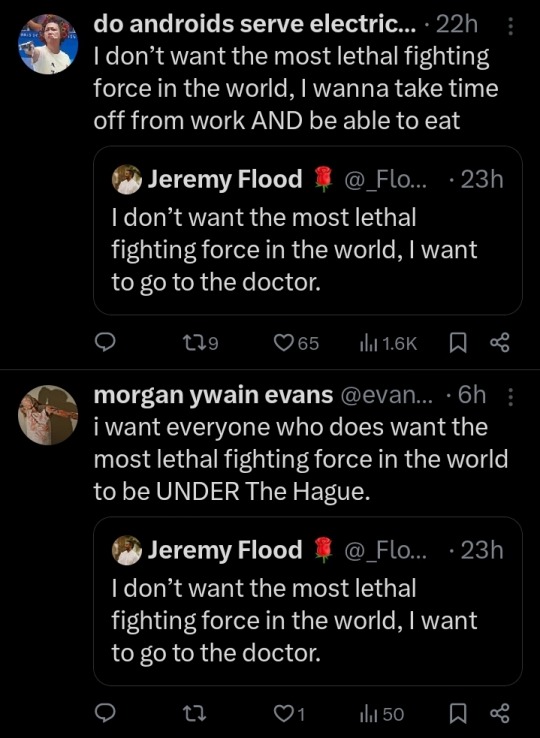
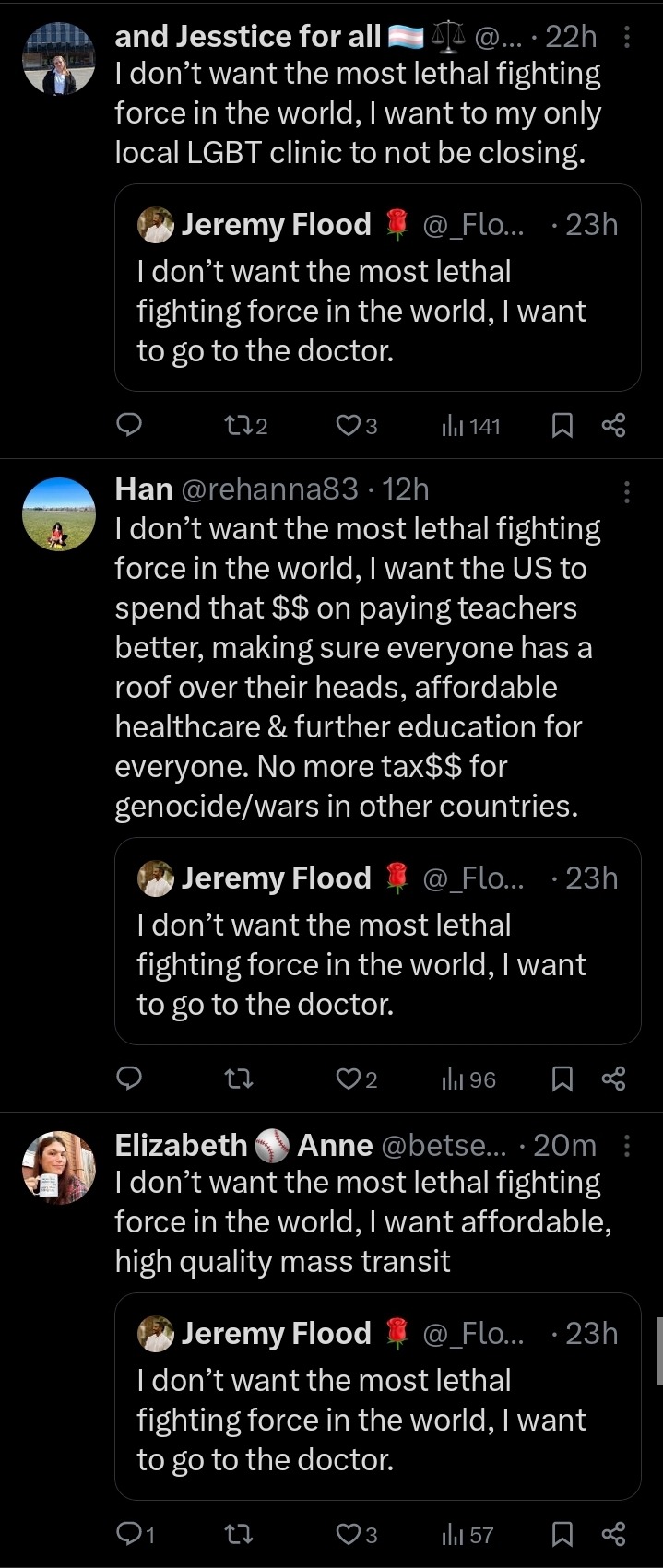
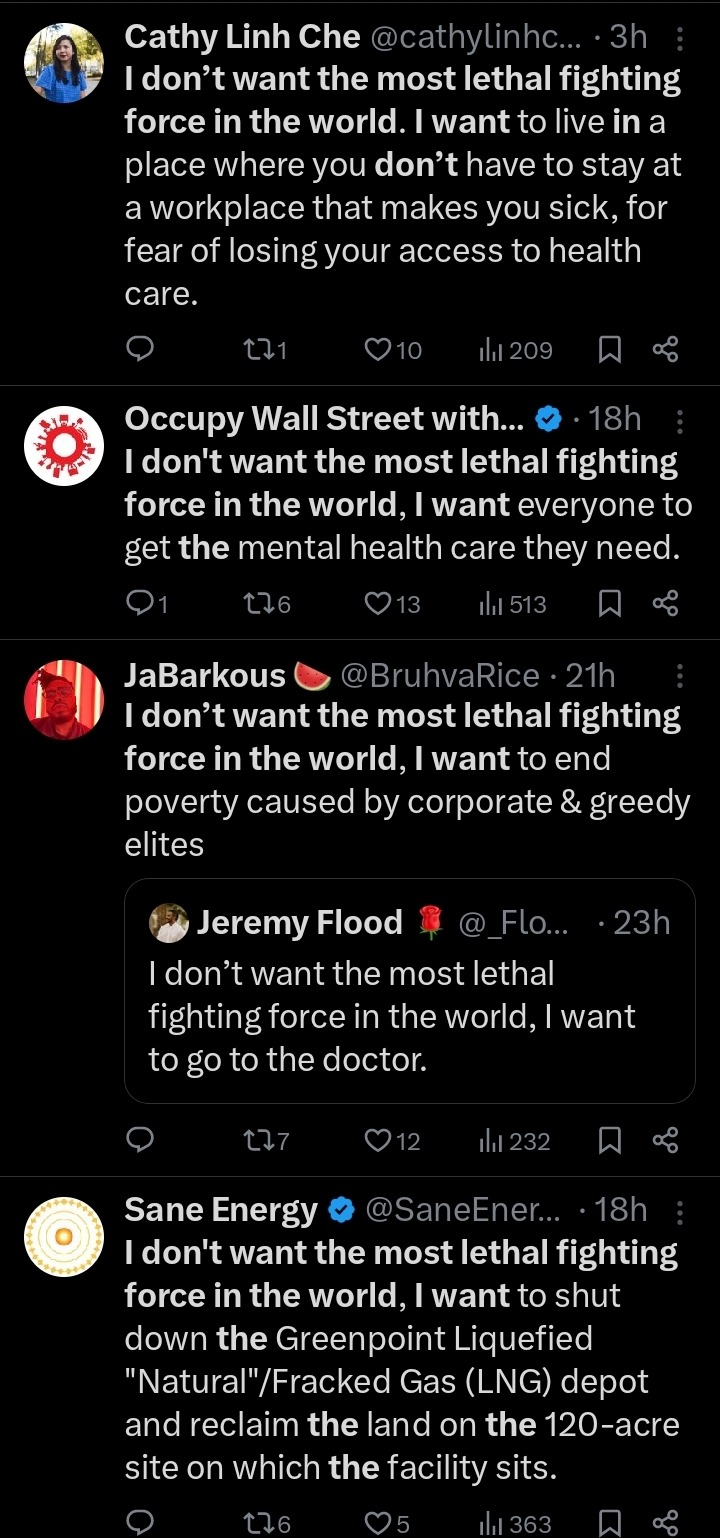
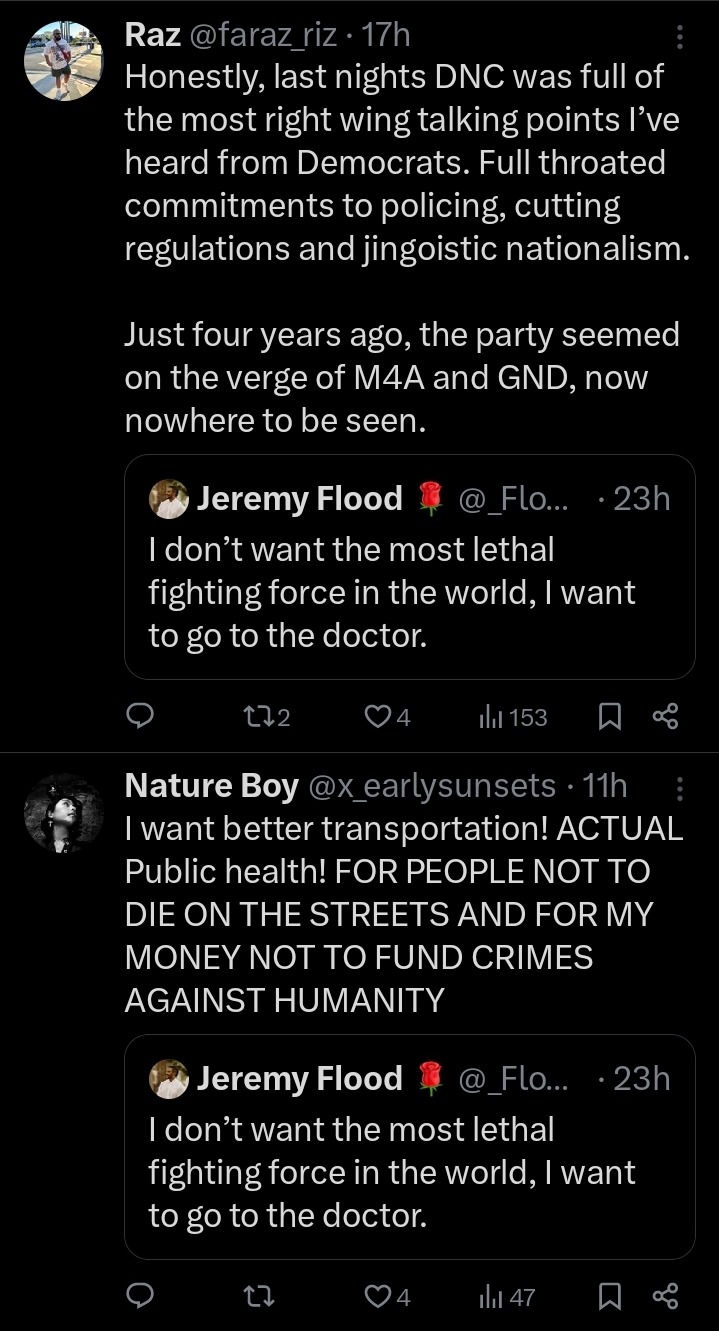
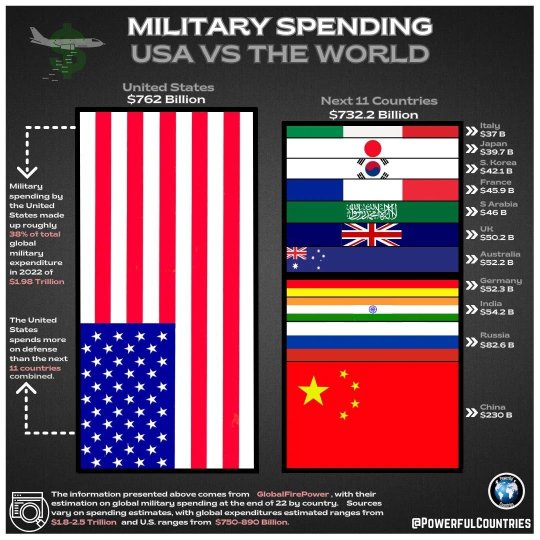
Alt enabled on all images.
#cordially inviting the next liberal asswipe that tries to say 'oh well do you think TRUMP will—' to drink bleach#us politics#dnc#twitter#civil rights#human rights#military industrial complex#war crimes#militarization#colonialism#white supremacy#knee of huss
2K notes
·
View notes
Text
Federal regulators on Tuesday [April 23, 2024] enacted a nationwide ban on new noncompete agreements, which keep millions of Americans — from minimum-wage earners to CEOs — from switching jobs within their industries.
The Federal Trade Commission on Tuesday afternoon voted 3-to-2 to approve the new rule, which will ban noncompetes for all workers when the regulations take effect in 120 days [So, the ban starts in early September, 2024!]. For senior executives, existing noncompetes can remain in force. For all other employees, existing noncompetes are not enforceable.
[That's right: if you're currently under a noncompete agreement, it's completely invalid as of September 2024! You're free!!]
The antitrust and consumer protection agency heard from thousands of people who said they had been harmed by noncompetes, illustrating how the agreements are "robbing people of their economic liberty," FTC Chair Lina Khan said.
The FTC commissioners voted along party lines, with its two Republicans arguing the agency lacked the jurisdiction to enact the rule and that such moves should be made in Congress...
Why it matters
The new rule could impact tens of millions of workers, said Heidi Shierholz, a labor economist and president of the Economic Policy Institute, a left-leaning think tank.
"For nonunion workers, the only leverage they have is their ability to quit their job," Shierholz told CBS MoneyWatch. "Noncompetes don't just stop you from taking a job — they stop you from starting your own business."
Since proposing the new rule, the FTC has received more than 26,000 public comments on the regulations. The final rule adopted "would generally prevent most employers from using noncompete clauses," the FTC said in a statement.
The agency's action comes more than two years after President Biden directed the agency to "curtail the unfair use" of noncompetes, under which employees effectively sign away future work opportunities in their industry as a condition of keeping their current job. The president's executive order urged the FTC to target such labor restrictions and others that improperly constrain employees from seeking work.
"The freedom to change jobs is core to economic liberty and to a competitive, thriving economy," Khan said in a statement making the case for axing noncompetes. "Noncompetes block workers from freely switching jobs, depriving them of higher wages and better working conditions, and depriving businesses of a talent pool that they need to build and expand."
Real-life consequences
In laying out its rationale for banishing noncompetes from the labor landscape, the FTC offered real-life examples of how the agreements can hurt workers.
In one case, a single father earned about $11 an hour as a security guard for a Florida firm, but resigned a few weeks after taking the job when his child care fell through. Months later, he took a job as a security guard at a bank, making nearly $15 an hour. But the bank terminated his employment after receiving a letter from the man's prior employer stating he had signed a two-year noncompete.
In another example, a factory manager at a textile company saw his paycheck dry up after the 2008 financial crisis. A rival textile company offered him a better job and a big raise, but his noncompete blocked him from taking it, according to the FTC. A subsequent legal battle took three years, wiping out his savings.
-via CBS Moneywatch, April 24, 2024
--
Note:
A lot of people think that noncompete agreements are only a white-collar issue, but they absolutely affect blue-collar workers too, as you can see from the security guard anecdote.
In fact, one in six food and service workers are bound by noncompete agreements. That's right - one in six food workers can't leave Burger King to work for Wendy's [hypothetical example], in the name of "trade secrets." (x, x, x)
Noncompete agreements also restrict workers in industries from tech and video games to neighborhood yoga studios. "The White House estimates that tens of millions of workers are subject to noncompete agreements, even in states like California where they're banned." (x, x, x)
The FTC estimates that the ban will lead to "the creation of 8,500 new businesses annually, an average annual pay increase of $524 for workers, lower health care costs, and as many as 29,000 more patents each year for the next decade." (x)
Clearer explanation of noncompete agreements below the cut.
Noncompete agreements can restrict workers from leaving for a better job or starting their own business.
Noncompetes often effectively coerce workers into staying in jobs they want to leave, and even force them to leave a profession or relocate.
Noncompetes can prevent workers from accepting higher-paying jobs, and even curtail the pay of workers not subject to them directly.
Of the more than 26,000 comments received by the FTC, more than 25,000 supported banning noncompetes.
#seriously cannot emphasize enough that this is going to be a huge deal for so so many people#it could seriously drag up wages in food and service industries in particular#especially in the long run#and also massively reshape tech and video game industries#do you have any idea how many game devs are legally not allowed to start their own studios? probably most of them#and that's about to change for the better!!#ftc#noncompete#united states#us politics#business#business news#biden administration#voting matters#democrats#federal trade commission#video game industry#game devs#fast food#fast food workers#labor#labor rights#workers rights#blue collar#service workers#good news#hope
3K notes
·
View notes
Text
U.S. Free Palestine Protests this Weekend: 2/17 through 2/19






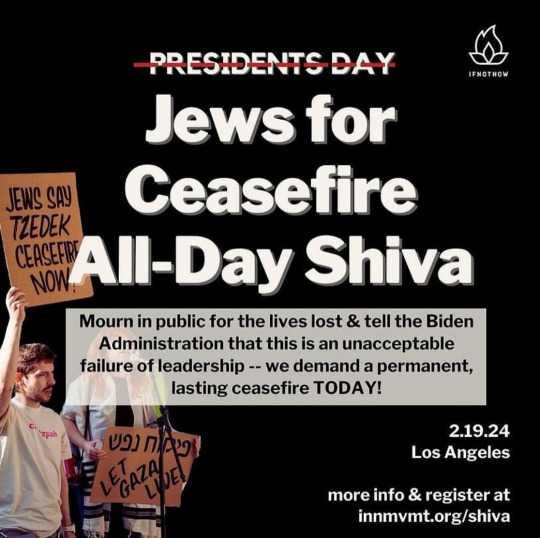


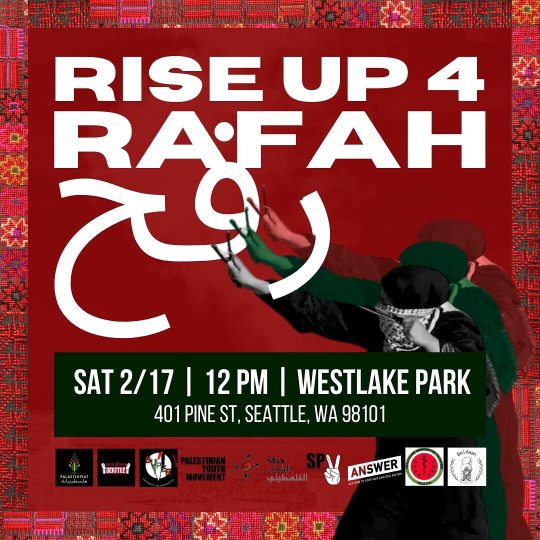
2/17 Denver, Colorado Indianapolis, Indiana San Diego, California Seattle, Washington
2/18 Boone, North Carolina Milwaukee, Wisconsin New Orleans, Louisiana
2/19 Aransas Pass, Texas Chicago, Illinois Los Angeles, California - Jews for Ceasefire All-Day Shiva
And there are many more! Check out the US Campaign for Palestinian Rights, Code Pink, and your local Palestinian and/or Muslim groups for protests in your area!
#free palestine#palestine#israel#cw genocide#gaza#palestinian genocide#direct action#protests#colonialism#military industrial complex#genocide#free gaza#ceasefire#i stand with palestine#stop the genocide#palestine genocide#anti zionisim#anti war#united states#us politics#joe biden#biden administration#biden is a war criminal#palestine protest#denver#colorado#indiana#indianapolis#san diego#california
4K notes
·
View notes
Text
I'm not explaining why re-imagining characters as POC is not the same as white-washing, here of all places should fucking understand.
#personal#delete later#no patrick. “black washing” is not as harmful as white washing.#come on guys get it together#seeing people in my reblogs talk about “reverse racism” and double standards is genuinely hypocrisy#say it with me: white washing is intrinsically tied to a historical and systematic erasure of poc figures literature and history.#it is an inherently destructive act that deplatforms underrepresented faces and voices#in favor of a light-skinned aesthetic hegemony#redesigning characters as poc is an act of dismantling symbols of whiteness in fiction in favor of diversification and reclamation#(note that i am talking about individual acts by individual artists as was the topic of this discourse. not on an industry-scale)#redesigning characters as poc is not tied to hundreds of years of systemic racism and abuse and power dynamics. that is a fact.#you are not replacing an underrepresented person with an oft-represented person. it is the opposite#if you feel threatened or upset or uncomfortable about this then sorry but you are not aware of how much more worse it is for poc#if representation is unequal then these acts cannot be equivalent. you can't point to an imbalanced scale and say they weigh the same#if you recognize that bipoc people are minorities then you should recognize that these two things are not the same#while i agree that “black washing” can lead to color-blind casting and writing the behavior here is on an individual level#a black artist drawing their favorite anime character as black because they feel a shared solidarity is not a threat to you#i mean. most anime characters are east asian and i as an east asian person certainly don't feel threatened or erased. neither should you.#there's much to be said about the politics of blackwashing (i don't even know if that's the right word for it)#but point standing. whitewashing is an inherently more destructive act. both through its history of maintaining power dynamics#and the simple fact that it's taking away from groups of people who have less to begin with#if you feel upset or uncomfortable about a fictional white character being redesigned as poc by an artist on twitter#i sincerely hope you're able to explore these feelings and find avenues to empathizing with poc who have had their figures#(both real and fictional) erased; buried; and replaced by white figures for hundreds of years#i sincerely hope you can understand the difference in motivations and connotations behind whitewashing and blackwashing#classic bixels “i'm not talking about this chat. i'm not” (puts my media studies major to use in the tags and talks the fuck outta it)
1K notes
·
View notes
Text
Collagen craze drives deforestation and rights abuses
For the first time an investigation has linked collagen powder to violence against Indigenous peoples in Brazilian forests

The stench arrives before the lorries do. They are carrying skins that were stripped from cattle carcasses days ago. Flies are everywhere.
The lorries’ destination is Amparo, a small industrial town in São Paulo state, southeastern Brazil. Here, Rousselot, a company owned by the Texan business Darling Ingredients, extracts collagen – the active ingredient in health supplements at the centre of a global wellness craze.
But while collagen’s most evangelical users claim the protein can improve hair, skin, nails and joints, slowing the ageing process, it has a dubious effect on the health of the planet. Collagen can be extracted from fish, pig and cattle skin, but behind the wildly popular “bovine” variety in particular lies an opaque industry driving the destruction of tropical forests and fuelling violence and human rights abuses in the Brazilian Amazon.
An investigation by the Bureau of Investigative Journalism, the Guardian, ITV and O Joio e O Trigo has found that tens of thousands of cattle raised on farms damaging tropical forests were processed at abattoirs connected to international collagen supply chains.
Some of this collagen can be traced all the way to Nestlé-owned Vital Proteins, a major producer of collagen supplements championed by the actress Jennifer Aniston. Vital Proteins is sold globally – including online on Amazon, in Walmart stores in the US, in Holland & Barrett and Boots in the UK and in Costco in both countries.
The investigation – the first to connect bovine collagen with tropical forest loss and violence against Indigenous peoples – found at least 2,600 sq km of deforestation linked to the supply chains of two Brazil-based collagen operations with connections to Darling: Rousselot and Gelnex, which is in the process of being acquired by Darling for $1.2bn. It is unclear how much of this deforestation, which was calculated by the Center for Climate Crime Analysis, is linked to Vital Proteins.
Continue reading.
#brazil#politics#brazilian politics#environmental justice#environmentalism#indigenous rights#beauty industry#mod nise da silveira#image description in alt
6K notes
·
View notes
Text
You may notice I frequently comment on the assumptions people make about animal facilities based on their branding. Frequently, people assume accredited facilities are inherently better for animals than unaccredited facilities, or assume sanctuaries are inherently more moral / better at caring for their animals than zoos.
I want to show you an example of why I am always, always skeptical of these assumptions.
If you’re in the California area, you might have heard about Hank the Tank - who is actually a Henrietta, btw - the 500 pound nuisance bear from Lake Tahoe who broke into 21 homes in search of food. She was recently captured by wildlife officials and moved to a sanctuary in Colorado. The Wild Animal Sanctuary has three main facilities, two in Colorado and one in TX. To give you some context, it’s the biggest carnivore sanctuary in the country - they advertise somewhere between 300-500 animals, mostly large carnivores, between their properties. It’s where most of the Tiger King cats went. It’s PETA’s preferred placement for confiscated exotic animals. So, obviously, it’s got to be great, right? Except… take a look at what they posted about Henrietta’s arrival.
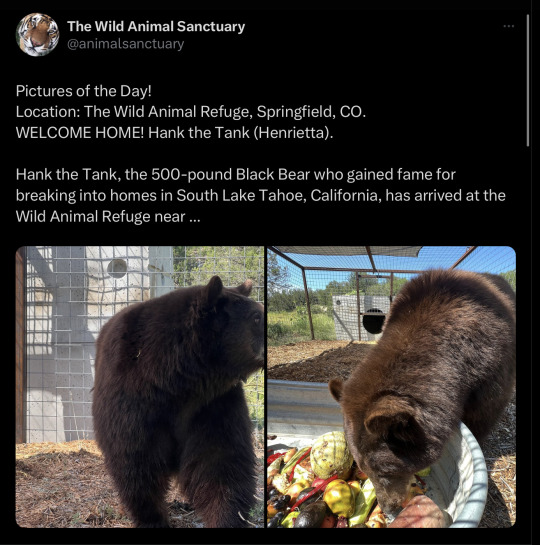
Here’s their post about Henrietta’s arrival at the Refuge, the large facility in Colorado that isn’t open to the public. Let’s take a closer look at that food trough…
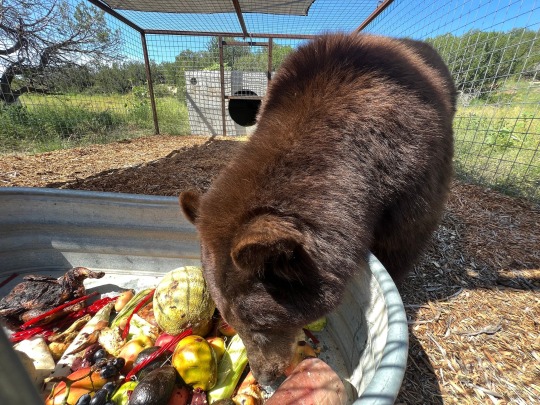
What do we see here? An entire rotisserie chicken that is either blackened or highly seasoned, and a whole ham. Maybe a second chicken underneath the pile, I can’t quite tell. The sanctuary gets the majority of their bear food donated from groceries stores once it’s past the sell-by date, so we know those are older meats and they’re full of a ton of salt. Then, for fruit and veg, there’s a cantaloupe, mango, corn, avocado, grapes, and apples. Maybe a pepper or two, it’s hard to tell. That’s a lot of sugar and not a lot of fiber or roughage.
But… on top of it and to the right… are those Twizzlers?
Yes.
The sanctuary confirmed on Facebook that they fed this recently rescued obese bear what looks like almost an entire pack of Twizzlers.
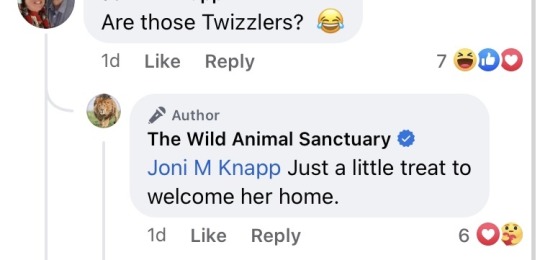
I don’t know of any world in which it’s appropriate to feed candy to a bear. Maybe a piece or two as a really high value reinforcer for hard behaviors (that isn’t relevant here, it’s openly against this sanctuary’s ethos to do any husbandry or medical training). An entire pack of Twizzlers is just appalling. But it’s not uncommon for this facility! I have a book written about their operations and animal care (that I bought at their gift shop this spring) which openly discusses how the bears get fed bread, doughnuts, marshmallows, and all sorts of incredibly unhealthy food that comes in with the grocery donations.
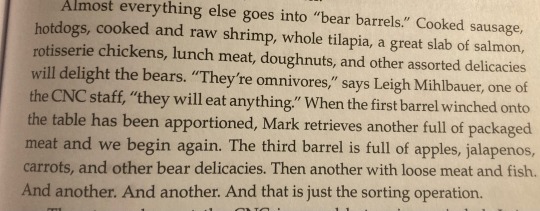

But hey, this is apparently fine for the bears, according to the sanctuary’s founder. He was quoted in that same book as saying “Bears are the only animal I know of that can eat insane amounts of sugar and it never hurts them. It does not hurt their organs. They do not get clogged arteries. They do not have high blood pressure. In the wild they eat all these sweet berries in the fall, and they convert sugar to fat… so the more sugar they get the better… we would all love to have a system like that!”
Now while it’s true that bears have physiological adaptations that modulate their insulin production and sensitivity in ways that appear to prevent them from from developing diabetes, that does’t mean it’s healthy for them to regularly eat processed carbohydrates, sugar, and general junk food. And remember - Henrietta gained her fame because of how incredibly overweight she already is, and because she was seeking out human food, According to the Washington Department of Fish and Wildlife, a healthy weight for a normal adult black bear is between 100-300 pounds. So, obviously, the best thing to do is… continue to feed her candy.
Then, later on in the book, it details how they have to bribe a camel to sit tight for a regular medical examination (since they don’t train for medical behaviors) by letting him drink a can of Mountain Dew each time.
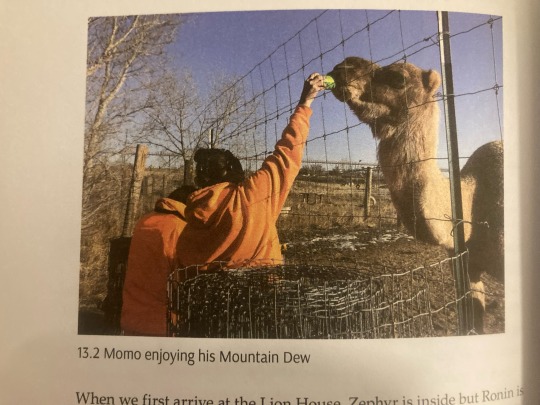
If a zoo was known publicly to be feeding their animals Mountain Dew or a couple Twizzlers - even just once, on a rare occasion - they’d be eviscerated in the media and by public opinion. But feeding out inappropriate junk food appears to be a pretty common practice at this place, and it just goes unscrutinized because everyone assumes sanctuaries are inherently better for animals.
So, long story short, never make assumptions about the quality of a facility based on it’s branding or accreditation. (TWAS is accredited by the Global Federation of Animal Sanctuaries). If you have concerns about the ethics or practices of a facility, always try to put your preconceptions aside, go and see for yourself, and think critically about what you see and what you’re told.
#animal sanctuary#hank the tank#zoo industry politics#sanctuary politics#I have a lot of thoughts about this facility and some of the truly distressing things occurring there but am not yet ready to say much#suffice to say this is somewhere I would strongly discourage you from supporting
3K notes
·
View notes
Text

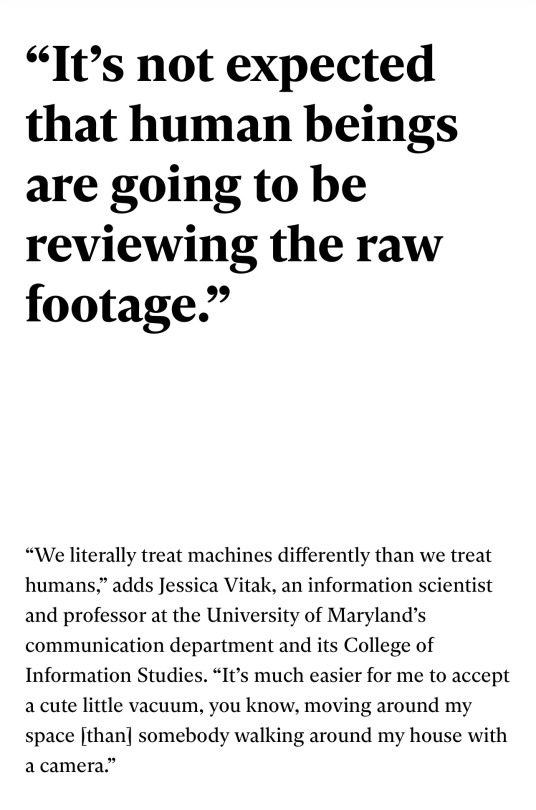


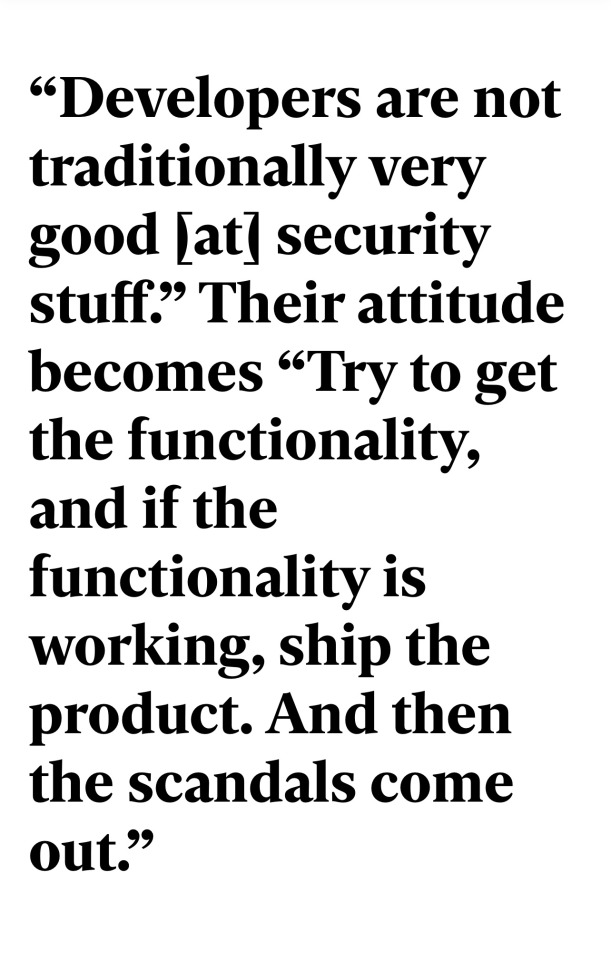
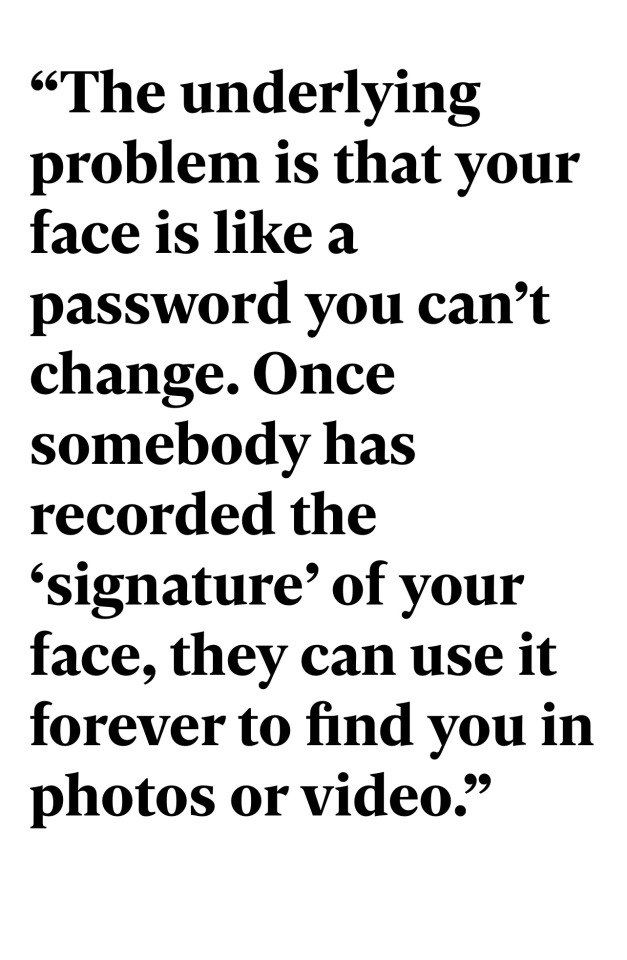
IN THE FALL OF 2020, GIG WORKERS IN VENEZUELA POSTED A SERIES OF images to online forums where they gathered to talk shop. The photos were mundane, if sometimes intimate, household scenes captured from low angles—including some you really wouldn’t want shared on the Internet.
In one particularly revealing shot, a young woman in a lavender T-shirt sits on the toilet, her shorts pulled down to mid-thigh.
The images were not taken by a person, but by development versions of iRobot’s Roomba J7 series robot vacuum. They were then sent to Scale AI, a startup that contracts workers around the world to label audio, photo, and video data used to train artificial intelligence.
They were the sorts of scenes that internet-connected devices regularly capture and send back to the cloud—though usually with stricter storage and access controls. Yet earlier this year, MIT Technology Review obtained 15 screenshots of these private photos, which had been posted to closed social media groups.
The photos vary in type and in sensitivity. The most intimate image we saw was the series of video stills featuring the young woman on the toilet, her face blocked in the lead image but unobscured in the grainy scroll of shots below. In another image, a boy who appears to be eight or nine years old, and whose face is clearly visible, is sprawled on his stomach across a hallway floor. A triangular flop of hair spills across his forehead as he stares, with apparent amusement, at the object recording him from just below eye level.

iRobot—the world’s largest vendor of robotic vacuums, which Amazon recently acquired for $1.7 billion in a pending deal—confirmed that these images were captured by its Roombas in 2020.
Ultimately, though, this set of images represents something bigger than any one individual company’s actions. They speak to the widespread, and growing, practice of sharing potentially sensitive data to train algorithms, as well as the surprising, globe-spanning journey that a single image can take—in this case, from homes in North America, Europe, and Asia to the servers of Massachusetts-based iRobot, from there to San Francisco–based Scale AI, and finally to Scale’s contracted data workers around the world (including, in this instance, Venezuelan gig workers who posted the images to private groups on Facebook, Discord, and elsewhere).
Together, the images reveal a whole data supply chain—and new points where personal information could leak out—that few consumers are even aware of.
(continue reading)
#politics#james baussmann#scale ai#irobot#amazon#roomba#privacy rights#colin angle#privacy#data mining#surveillance state#mass surveillance#surveillance industry#1st amendment#first amendment#1st amendment rights#first amendment rights#ai#artificial intelligence#iot#internet of things
5K notes
·
View notes
Text
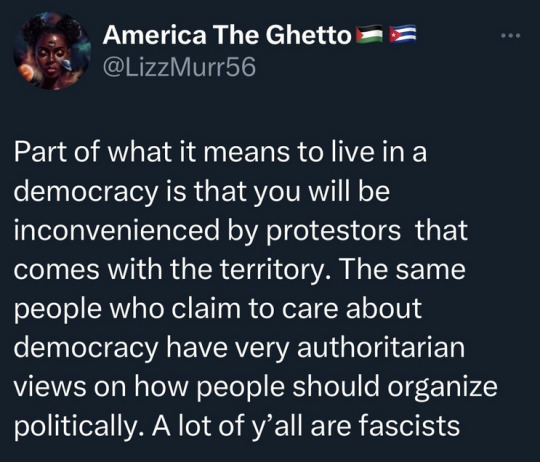
#protesting#anti capitalism#socialism#communism#anarchy#twitter post#tweet#leftism#college protests#columbia university#protest#campus protests#student protests#peaceful protest#democrat#democracy#democratic party#democrats#soldier#spy#sniper#fascismo#imperialism#military industrial complex#colonialism#american politics#us imperialism
366 notes
·
View notes
